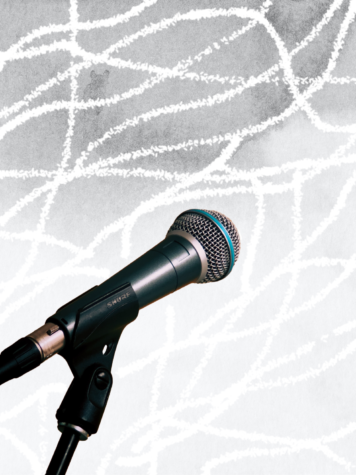I am autistic; I am proud

I first learned of my diagnosis on Jan. 3, 2016. My dad sat next to me on the couch, and my mom sat in the recliner across the room. They asked me to pause the New England Patriots game and said there was news they wanted to share with me.
I paused the television and my dad began “Jeremy, we got the neuropsych report back, and it indicated that you have mild autism.” I took a second, then shouted in disbelief, “Wait … I’M AUTISTIC!!??”
My parents left, and as the incredulity faded, shame and feelings of inferiority set in. Autistic individuals are depicted in media as outcasts and charity cases; they were community service opportunities rather than fully developed human beings with agency. In my school, the autistic kids I knew about were siloed in special needs classes, away from other kids.
In another sense, however, I was relieved. I had taken the neuropsych test to monitor a non-verbal learning disability used to diagnose me in the past, but I remembered hoping that it would explain to me why I often felt different and defective.
I had always struggled to make friends in school and up to that point had not had a single friend over to my house from school outside of elementary school playdates. It was as though everyone had access to some sort of knowledge that I lacked.
There were times throughout my childhood I felt destined to live a lonely life devoid of genuine connection with my peers.
I was also fortunate. My parents could afford to take me to a speech pathology center, a luxury that is out of reach for many autistic individuals. There, I attended social groups and received constructive criticisms from the adult group leader on how to better relate and communicate with my peers.
I still remember the first piece of advice I got: “say goodbye to people when you leave a group outing.” These were the type of things everyone else seemed to instinctively know, but I needed to be explicitly told.
Each week, over the course of several years, I developed the skills I needed to make friends in college.
Although I no longer attend speech pathology, this type of therapy gave me humility, a lifelong appreciation for constructive criticism that continues to strengthen my relationships and made me a far more introspective person.
When someone in my life tells me that my behavior negatively impacts them in some way, I thank them for their clarity and focus on changing my behavior. Without the mindset speech pathology gave me, I would not have the rich relationships with my peers that I cherish today.
The friendships I developed in college were validating; they taught me that I am deserving of love and respect.
Later on, I even began to appreciate my autism. I realized that although this neurological condition had its burdens, it has made me the person I am today.
Autism has taught me to be understanding when someone says the wrong thing or acts in an unexpected way because I know first hand how hard it can be to fit in.
Autism has taught me to bring other well intentioned people who feel left out into my social circle.
Autism has taught me, in response to the frequent mistakes I make, how to laugh at myself and not take myself too seriously, which helps me remain upbeat and can diffuse tense situations.
Autism of course presents its challenges as well. The autistic community endures higher rates of anxiety, social isolation and depression. These are all issues that deserve urgent attention and ones I have personally experienced. I am also aware that others with more pronounced cases of autism likely have more personal experience with these challenges. However, we are a strong and talented community that makes the world a more vibrant place.
It took me years to comprehend that autism was an identity, and even longer to understand that it was an identity that I could take pride in. Now I am proud to be autistic.
Your donation will support the student journalists of Tulane University. Your contribution will allow us to purchase equipment and cover our annual website hosting costs.


